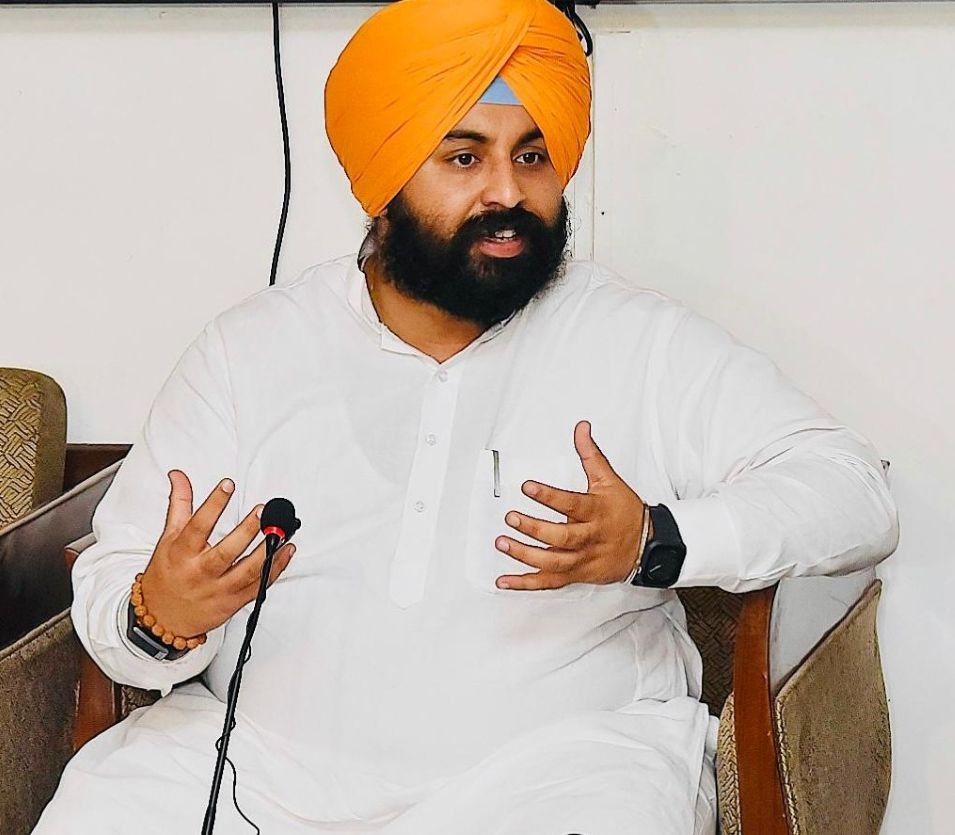In a significant step aimed at preserving the legacy of Punjab’s heroes and inspiring future generations, the Aam Aadmi Party-led Punjab government has renamed 115 government schools after distinguished personalities, including freedom fighters, martyrs, and internationally acclaimed sports icons. The move, as announced by Punjab’s Minister for School Education, Harjot Singh Bains, reflects the state’s commitment to infusing education with pride, heritage, and historical awareness.
Addressing a press conference at Punjab Bhawan, Bains highlighted the government’s larger vision behind this initiative. He noted that this was not merely a renaming exercise but a tribute to the values, courage, and sacrifices of those who played defining roles in shaping Punjab’s and India’s history. “Our children must grow up knowing about those who gave everything for our freedom and who brought laurels to the state and the nation. These stories must be part of their learning environment,” Bains said.
The announcement follows Chief Minister Bhagwant Singh Mann’s declaration that a school in Beas village, located in Jalandhar district, would soon be renamed after the legendary marathon runner Sardar Fauja Singh. The Chief Minister’s decision has been widely welcomed as a step towards acknowledging the contributions of such living legends whose life stories continue to inspire not only Indians but also people around the world.
Among the 115 schools renamed, 25 were officially designated on July 18, 2025, after renowned martyrs and freedom fighters. These schools will now carry the names of figures associated with the Ghadar movement, independence struggle, and other milestones in Punjab’s rich historical and cultural landscape. The renaming process also includes the installation of photographs and brief life histories of these personalities on school premises. This will allow students to not only read about but visually connect with their legacies.
Bains emphasized that this cultural integration within educational institutions will go a long way in sensitizing young minds to the sacrifices and contributions of Punjab’s icons. He cited the earlier example of how, after decades of oversight, the Government High School in Khatkar Kalan was finally renamed Shaheed-e-Azam Sardar Bhagat Singh Government High School in 2023. According to Bains, such actions are long overdue and reflect the Mann government’s determination to correct historical omissions and honor the state’s real heroes.
In response to media questions during the briefing, the Minister addressed other key educational initiatives as well. On the topic of the ongoing anti-drug campaign ‘Yudh Nashian Virudh’, Bains revealed that the education department, in collaboration with domain experts, is developing a specialized curriculum aimed at educating students about the dangers of drug abuse. This curriculum is expected to be introduced across schools in the coming months, and will be designed in a manner that builds a strong psychological and moral defense against drug addiction among adolescents.
Bains also supported the inclusion of Sikh history in the academic syllabus, stating that it should be represented with due depth and respect. He emphasized that Sikh history is not just religious or regional history, but an essential part of India’s civilizational narrative. “Our syllabus must reflect the resilience, justice, and sacrifice embedded in Sikh history. These are values that every child should learn,” he stated.
This campaign to rename schools and reform curriculum is part of the broader educational transformation being led by the Punjab government under the leadership of Chief Minister Bhagwant Mann. By combining infrastructure development with curricular enrichment and cultural integration, the government is aiming to redefine the purpose and experience of schooling in Punjab.
The inclusion of visuals and biographies within the schools will ensure that the youth are constantly reminded of the values that these personalities stood for—be it bravery, resilience, patriotism, or excellence in sports. Educators and social thinkers across the state have lauded the move as a thoughtful and much-needed intervention at a time when children are often disconnected from the lived histories of their regions.
The government’s proactive role in realigning school identities with Punjab’s illustrious past is also being seen as a step to instill pride and moral integrity in young citizens. At a time when cultural erosion and historical amnesia are being flagged globally, Punjab’s initiative offers a model of how state-led educational reform can simultaneously honor the past and shape a future grounded in pride and purpose.
With Project JEEVANJYOT 2.0 and the Yudh Nashian Virudh campaign running parallel to such symbolic initiatives, Punjab appears to be creating a holistic blueprint for social reform, centered on education and youth engagement.
The state government’s commitment to preserving historical memory, promoting social responsibility, and fostering educational excellence is evident in its recent actions. This renaming initiative stands not only as a tribute to the past but also as a pledge to the future—where every student knows the heroes who walked before them and feels empowered to walk a path of purpose themselves.
This news story has been auto web-generated for high-value digital publication and SEO optimization.
